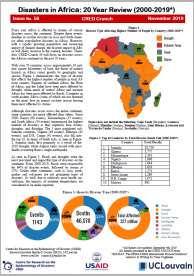
Newsletter from CRED (Issue no.56 November 2019).
Poor precipitation, desertification, pronounced absence of precipitation.
The following is a list of all conten labeled as "Drought"

Newsletter from CRED (Issue no.56 November 2019).
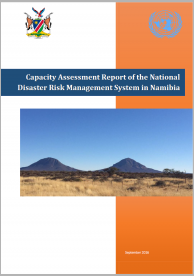
The national capacity assessment identified existing capacities, gaps and needs related to disaster risk management, and proposed a set of prioritized recommendations on how these capacities can be strengthened.

Risk Atlas of the Atsimo Andrefana Region. It includes information and mapping regarding physical geography of the region; settlements, infrastructure, health and agricultural sectors and climatic hazards, such as cyclones, droughts and floods.
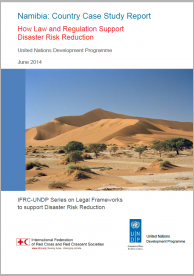
This report assesses the content and implementation of Namibia's new national framework for Disaster Risk Management (DRM) and Disaster Risk Reduction (DRR), and related legislation, which includes the Disaster Risk Management Act (DRMA) of 2012, the National Disaster Risk Management Plan of 2011, and the National Disaster Risk Management Policy of 2009.
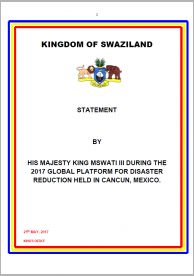
An Official Statement made by His Majesty King Mswati III, at the fifth session of the Global Platform for Disaster Risk Reduction, May 2017.

This report was commissioned to examine the status, issues and challenges, strengths and weaknesses of disaster risk assessment (DRA) in Mozambique and to recommend ways of implementing a national risk assessment (NRA) (scope, governance, etc). The approach was of implementing a Systematic Inventory and Evaluation of Risk Assessments, after UNDP/BCPR/GRIP (2010).
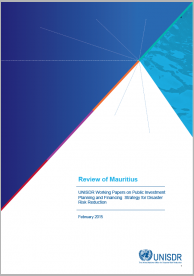
This report summarizes all activities implemented for Mauritius in the context of the joint UNISDR/ISLANDS project entitled "Strengthening Capacities for Unified Climate Change Adaptation and Disaster Risk Reduction Through the Facilitation of Risk Transfer and Finance Mechanisms" within the "ISLANDS Programme for Financial Protection against Climatic and Natural Disasters." T
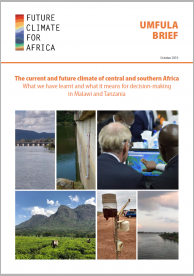
After 4 years of research by a multi-disciplinary team and co-production in partnership with government staff, the UMFULA project has released a briefing note that discusses "The current and future climate of central and southern Africa: What we have learnt and what it means for decision-making in Malawi and Tanzania".

The report presents findings on the assessment of progress and experiences in mainstreaming disaster risk reduction into national development frameworks in Malawi. The assessment was commissioned jointly by the secretariat of the Southern African Development Community (SADC), ECA and UNISDR.

This Strategy is divided into nine priority axes which are: